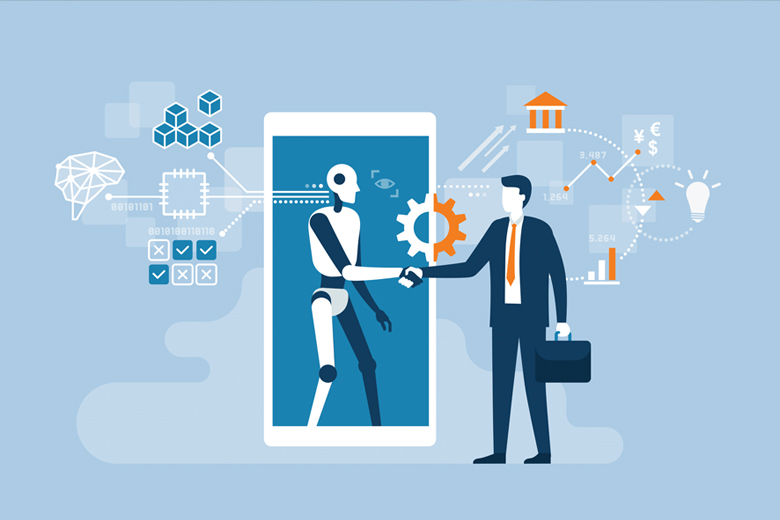Artificial Intelligence (AI) has been advancing rapidly in recent years, and it has become an integral part of our daily lives. AI is now used in various industries, such as healthcare, finance, transportation, and entertainment, among others. The future of AI is expected to be even more transformative, as the technology continues to evolve and improve.
One of the most significant areas of growth for AI is in the field of autonomous systems. Self-driving cars are just one example of how autonomous systems can revolutionize the transportation industry. With AI-powered navigation and decision-making systems, self-driving cars could reduce accidents, save lives, and significantly reduce traffic congestion. In the near future, we can expect to see more autonomous systems in industries such as manufacturing, agriculture, and logistics.
Future of AI
AI is also expected to play a significant role in healthcare. With AI-powered medical diagnosis and treatment systems, doctors could provide more accurate and personalized healthcare to patients. AI can also help doctors identify diseases at an earlier stage, which can lead to more effective treatments and better outcomes. AI-powered medical devices and wearables can also provide real-time monitoring and feedback to patients, helping them manage their health more effectively.
The use of AI in education is also expected to grow. AI-powered learning systems can help teachers personalize education for students, providing tailored content and feedback based on the student’s individual needs and learning styles. AI can also help identify areas where students are struggling and provide additional resources and support to help them succeed.
Another area of growth for AI is in the entertainment industry. AI-powered systems can help create more immersive and interactive experiences for consumers, such as virtual reality and augmented reality. AI can also be used to create more realistic and compelling video games, movies, and TV shows.
Despite the potential benefits of AI, there are also concerns about its impact on the workforce. AI-powered automation could lead to job losses in industries such as manufacturing, transportation, and customer service. However, AI could also create new job opportunities in areas such as AI development, data analysis, and robotics.
There are also concerns about the ethical implications of AI. AI systems are only as unbiased as the data they are trained on, and there is a risk of perpetuating existing biases and inequalities in society. There are also concerns about the potential misuse of AI, such as the use of facial recognition technology for surveillance purposes.
To address these concerns, it is essential to develop ethical frameworks for the development and deployment of AI systems. This includes ensuring that AI systems are designed to be transparent, explainable, and accountable. It also involves ensuring that AI is used to promote social good and does not harm individuals or groups.
In conclusion, the future of AI is expected to be transformative, with the technology revolutionizing various industries and aspects of daily life. While there are concerns about the impact of AI on the workforce and the potential ethical implications of its use, these issues can be addressed through the development of ethical frameworks and responsible deployment of AI systems. As AI continues to evolve and improve, it will be essential to ensure that its benefits are shared equitably and that its impact is positive for individuals and society as a whole.
Will it cease the manual work?
AI has the potential to automate many manual tasks, but whether it will completely cease manual work is debatable. While AI and automation have already replaced some jobs, there are still many tasks and industries where human labor is essential. Some tasks require human creativity, problem-solving, and interpersonal skills that cannot be replicated by AI.
Furthermore, some tasks may not be cost-effective to automate. For example, some manual tasks may only require a few hours of work per day or require highly specialized skills that are not easily replaced by machines. In these cases, it may be more efficient and cost-effective to continue using human labor rather than investing in automation.
However, it is likely that AI and automation will continue to replace many manual tasks in the future. This trend has already been seen in industries such as manufacturing, where robots have replaced human workers in many tasks. In the near future, we can expect to see more automation in industries such as transportation, agriculture, and construction.
While the displacement of workers due to automation is a concern, there are also potential benefits to increased automation. Automation can increase productivity and efficiency, leading to cost savings and higher profits for companies. It can also lead to improved safety in hazardous working conditions and reduce the risk of injury or death for workers.
In the long term, it is difficult to predict the exact impact of AI and automation on manual work. However, it is likely that some manual tasks will continue to be performed by humans, while others will be replaced by machines. As this transition occurs, it will be important to ensure that workers are equipped with the skills and training needed to adapt to the changing job market.
